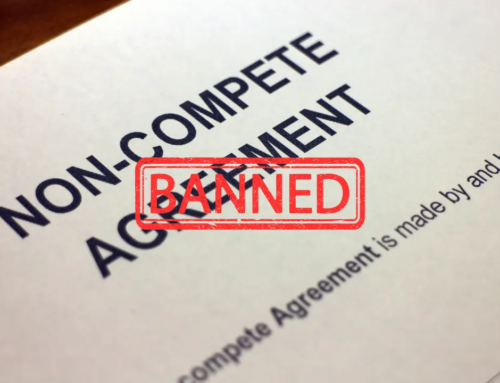Earlier this month, the FTC extended the public comment period on its proposed rule to ban non-compete clauses until April 19, 2023. In an analysis by Aaron Levine and Matt Todd of Polsinelli Law Firm, it’s said that the FTC’s proposal to ban non-competes could complicate how companies handle not only non-compete contracts, but also routine nondisclosure agreements. The FTC states that nondisclosure agreements that are written broadly enough that they preclude workers from practicing in the same field if they leave the company could be classified as a non-compete clause.
Compliance Complexity
In Section 5 of the FTC Act, non-compete agreements are seen to cause unfair competition because their use is tampering down pay, opportunity, and innovation by keeping even lower-level employees “tied” to their jobs.
NDAs can complicate compliance due to the complexity and difficulty of understanding what is and is not acceptable. For example, in an extreme case, a non-compliant NDA involving a securities company with an NDA banning employees from saying anything about securities. This effectively made the NDA a de facto non-compete, as no past employees could take a job in the same industry without violating the agreement.
“Certainly, the FTC does not mean to suggest that any NDA short of [this overly broad example] would be ‘appropriately tailored’ under its functional rule,” Todd and Levine said.
There are often cases in which employees subject to NDAs aren’t able to take advantage of potential opportunities as it could violate an NDA with a non-compete clause. That’s because any prudent measure a possible employer would take to avoid inducing an NDA breach and misappropriating a trade secret would leave the employee stuck in their current job. In cases like this, even while the NDA serves the intent of protective documentation and company data, it can still limit the employees’ options. However, the purpose would be to keep the employee from using trade-secret knowledge.
Caution Required
An example case that Todd and Levine share is when a company invited an employee of a competitor to an interview, but after learning of the NDA with a non-compete clause, decided not to extend a job offer out of an abundance of caution against violating the Defend Trade Secrets Act.
This would be a wise action that any company may take, but it could prompt the FTC to investigate the NDA and a functional non-compete. In turn, this could result in the employee’s previous company withdrawing the NDA entirely to avoid being subject to federal oversight in a consent decree under the ban.
So how do you write an NDA that’s compliant? Greater care will be required when drafting new NDAs. In their analysis, Todd and Levine state that NDAs may need to be regularly reviewed and revisited to ensure alignment with an employee’s current access to company information rather than general language that could violate the ban.
While the comment period ends on April 19, there’s currently no timeline on if/when a final rule will be passed. In the meantime, seeking a professional to review NDAs for anything that could be construed as a functioning non-compete is advised.




